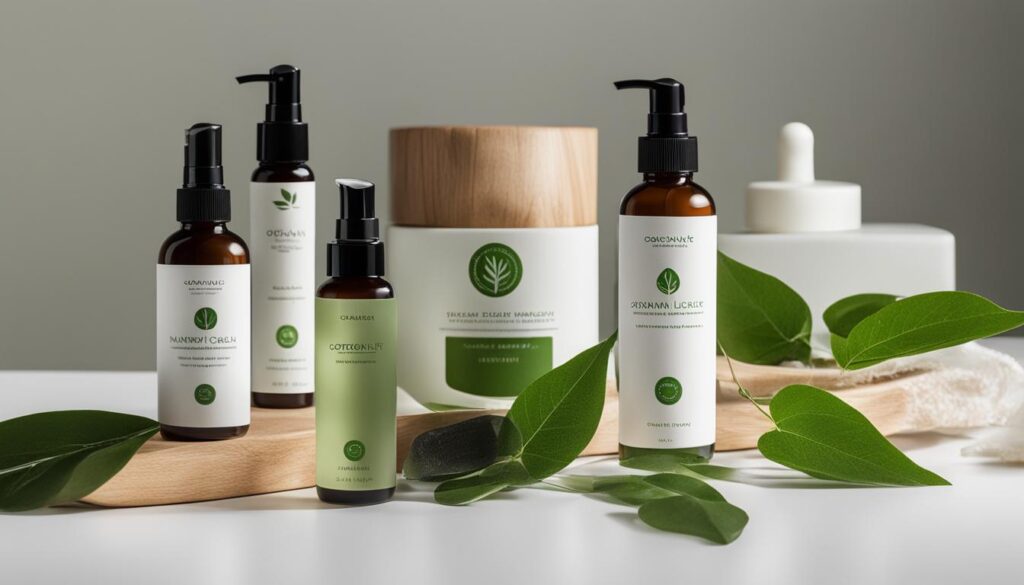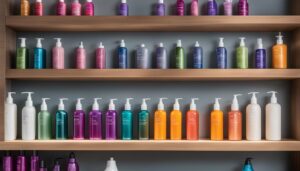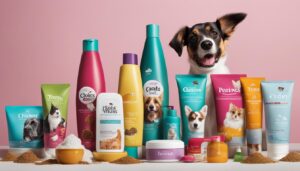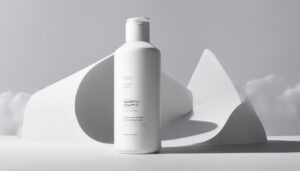The skin care industry is undergoing a significant transformation as consumers increasingly prioritize ethical and sustainable choices. The rise of the vegan beauty market has compelled skin care manufacturers to adapt their offerings to meet the growing demand for vegan skincare products and cruelty-free beauty alternatives.
The vegan beauty market is expanding at a rapid pace, projected to reach a staggering $21.4 billion by 2027. Mainstream retailers such as Target, Ulta Beauty, and Sephora are now selling vegan skincare and makeup products, reflecting the increasing popularity and acceptance of vegan cosmetics. In 2020 alone, the global market for vegan cosmetics reached $15.1 billion, with the U.S. market estimated at $4.1 billion. Online sales of vegan beauty products saw a remarkable 83% growth, exceeding $342 million.
Consumers are actively seeking out vegan products from Skin Care Manufacturersthat align with their personal values and are cruelty-free, driving this surge in demand. With an enhanced focus on sustainability and ethical consumerism, the demand for vegan beauty products is expected to continue growing.
Key Takeaways:
- Skin care manufacturers are adapting to the rise of the vegan beauty market
- Vegan skincare products are now widely available at mainstream retailers
- The global market for vegan cosmetics is projected to reach $21.4 billion by 2027
- Online sales of vegan beauty products have grown 83% in 2020
- Consumers are increasingly seeking vegan and cruelty-free alternatives
The Rise of Vegan Beauty in Skin Care Manufacturing
Skin Care Manufacturers have seen a significant rise in demand for vegan beauty products, driven by the increasing awareness of ethical and environmental concerns among consumers. This trend is particularly prominent among millennials and Gen Z consumers who are actively seeking out vegan options for their skincare and makeup routines. As a result, the vegan beauty market has experienced impressive growth in recent years.
Between 2014 and 2019, the number of vegan beauty products brought to market increased by a staggering 175%. In the UK alone, sales of vegan cosmetics rose by 38% in 2018. These figures reflect the growing popularity and acceptance of vegan beauty products across the globe.
Currently, the worldwide vegan beauty market is estimated to be worth $15.17 billion in 2021, and it is projected to continue growing at a compound annual growth rate (CAGR) of 6.3% from 2022 to 2030. The future looks bright for the vegan beauty industry as more consumers prioritize ethical and sustainable choices in their beauty routines. With a wide range of innovative and effective vegan options available, consumers no longer have to compromise their values for quality skincare and makeup products.
As the beauty industry continues to evolve, it is clear that the rise of vegan beauty is here to stay. Brands are increasingly investing in research and development to create high-quality, plant-based ingredients that can match the efficacy of their animal-derived counterparts. With the growing demand for cruelty-free and sustainable beauty products, the vegan cosmetics market is expected to further expand, driven by consumer preferences and evolving industry trends.
What Makes a Product Vegan?
When it comes to determining whether a product from your Skin Care Manufacturer is truly vegan, there are specific criteria that must be met. To begin with, a vegan product must not contain any animal-derived ingredients. This means that items such as honey, beeswax, lanolin, and certain types of collagen, which are derived from animals, cannot be included in the formulation.
In addition to excluding animal-derived ingredients, a vegan product must also not have been tested on animals. Animal testing involves subjecting animals to potentially harmful substances to evaluate their safety. Vegan cosmetics, on the other hand, are developed using alternative methods that do not involve animal testing, such as in vitro testing and computer modeling.
To help consumers in identifying and choosing vegan products, several certifications exist. These certifications, such as Certified Vegan, PETA’s Beauty Without Bunnies program, and the Leaping Bunny Program, provide assurance that a product is both vegan and cruelty-free. By looking for these certifications on product labels, consumers can make more informed choices that align with their values.
What About Clean Beauty?
It’s important to note that vegan beauty and clean beauty are not the same thing. While a vegan product excludes animal-derived ingredients, a clean beauty product focuses on using non-toxic and environmentally friendly ingredients. A product can be vegan but still contain synthetic ingredients, which may or may not be considered clean.
Brands are investing in research and development to create high-quality, plant-based ingredients that are as effective as their animal-derived counterparts. By leveraging innovative technologies and sustainable practices, these brands are able to offer vegan cosmetics that not only meet the demands of ethical consumers but also deliver the desired results.
Table: Vegan Certifications
| Certification | Description |
|---|---|
| Certified Vegan | This certification verifies that a product does not contain any animal-derived ingredients and has not been tested on animals. |
| PETA’s Beauty Without Bunnies | Products with this certification are both vegan and cruelty-free, ensuring they meet high ethical standards. |
| Leaping Bunny Program | This certification guarantees that a product is free from animal testing throughout its production process. |
With an increasing number of consumers prioritizing the use of vegan and cruelty-free products, the beauty industry is evolving to meet this demand. By understanding what makes a product vegan and seeking out certified options, consumers can make choices that align with their values and contribute to a more ethical and sustainable beauty industry.
The Growth and Future of Vegan Cosmetics in Skin Care Manufacturing
Skin Care Manufacturers in the vegan cosmetics market are experiencing significant growth and is expected to continue expanding in the coming years. With increasing consumer demand for cruelty-free and sustainable beauty products, the outlook for the vegan beauty industry is promising. The market size of vegan cosmetics is projected to reach $30.5 billion by 2033, with a compounded annual growth rate (CAGR) of 6.1% from 2023 to 2033.
One of the key drivers, as observed by Shay Labs, a leading Skin Care Manufacturer, is the growing public awareness of the negative impacts of animal-derived ingredients and animal testing. Consumers are becoming more conscious of the ethical considerations associated with their beauty purchases, leading them to choose vegan cosmetics. This trend is further fueled by the rise of ethical consumerism and the increasing importance of sustainability in the beauty industry.
Technological advancements also play a crucial role in the future of vegan cosmetics, as brands invest in research and development to create high-quality, plant-based ingredients that deliver the same efficacy as their animal-derived counterparts. These innovations are driving the development of innovative vegan beauty products that meet consumers’ expectations for performance and functionality.
| Key Factors | Estimated Growth |
|---|---|
| CAGR (2023-2033) | 6.1% |
| Projected Market Size by 2033 | $30.5 billion |
In addition to the aforementioned factors, the future of the vegan cosmetics market is also influenced by the rise of emerging markets, particularly in Asia. As vegan beauty gains popularity worldwide, Asian countries are increasingly embracing the trend and contributing to the market’s growth. Moreover, the expansion of e-commerce channels is expected to further boost sales, although brick-and-mortar stores still hold relevance in attracting and engaging customers.
Overall, the growth and future of vegan cosmetics look promising, driven by consumer demand for cruelty-free and sustainable beauty products, advancements in technology, and the expanding vegan beauty market in both established and emerging markets. As the industry continues to evolve, it is expected to offer a wide range of innovative and high-quality vegan beauty products, providing consumers with more choices and options that align with their values and ethical considerations.
Conclusion
The demand for vegan and cruelty-free beauty products is driving a significant shift in the beauty industry. With consumers increasingly prioritizing ethical consumerism and sustainable beauty, the market for vegan cosmetics is experiencing rapid growth and is projected to continue expanding.
By choosing vegan beauty products, consumers can align their beauty routines with their values, promoting a more compassionate and environmentally conscious approach to skincare and makeup. The rise of vegan beauty trends reflects a greater awareness of the negative impacts of animal-derived ingredients and the desire for cruelty-free alternatives.
As the market continues to evolve, Skin Care Manufacturers are adapting to meet the demand for vegan cosmetics. They are launching dedicated vegan product lines and investing in research and development to create high-quality, plant-based ingredients that offer the same effectiveness as their animal-derived counterparts.
The future of Skin Care Manufacturering industry looks promising, with increasing consumer awareness, technological advancements, and the rise of emerging markets contributing to its growth. As ethical consumerism becomes more mainstream, the demand for sustainable beauty options will continue to drive the expansion of the vegan beauty market.
FAQ
What is driving the growth for Skin Care Manufacturers in the vegan beauty market?
The growth of the vegan beauty market is driven by increased consumer awareness of ethical and environmental concerns, with millennials and Gen Z consumers playing a significant role.
How can a product be considered vegan?
To be considered vegan, a product must not contain any animal-derived ingredients and must not have been tested on animals. It can be entirely plant-based, synthetic, or a combination of the two.
What is the difference between “vegan” and “clean” beauty?
While a product can be vegan, it can still contain synthetic ingredients. “Clean” beauty refers to products that are free from potentially harmful chemicals, whereas vegan beauty focuses on the absence of animal-derived ingredients.
How can consumers identify vegan and cruelty-free products?
Certifications like Certified Vegan, PETA’s Beauty Without Bunnies, and the Leaping Bunny Program help consumers identify and trust vegan and cruelty-free products.
What is the future outlook for the vegan cosmetics market?
The vegan cosmetics market is predicted to reach $30.5 billion by 2033, driven by increasing consumer demand for cruelty-free and sustainable beauty products, technological advancements, and emerging markets.
Shay Labs is Here to Help!
Shay Labs is a trusted name in the cosmetic manufacturing industry. With years of experience and a strong commitment to quality, Shay Labs offers a wide range of private label manufacturing services for beauty, skin, hair, pet, and personal care products. Their state-of-the-art facilities and dedicated team ensure that every product is created with the utmost care and attention to detail. By choosing Shay Labs, companies can enhance their brand and bring their vision to life, all while promoting responsible and sustainable beauty practices.





